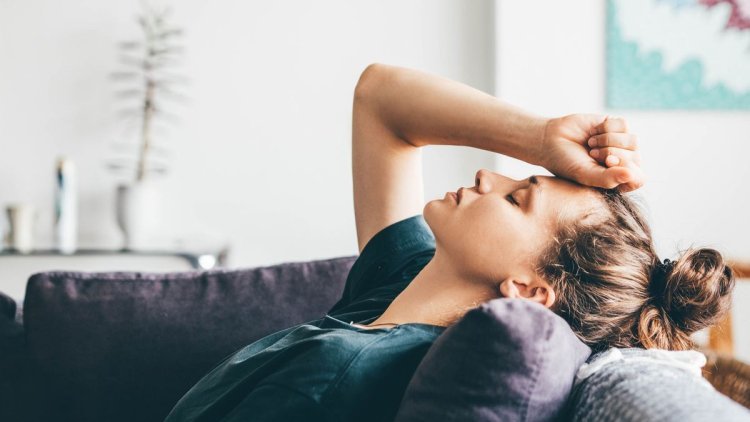Strategies for Managing Anxiety in Recovery
Anxiety is a common challenge for individuals in recovery from addiction

Anxiety is a common challenge for individuals in recovery from addiction. The process of overcoming addiction often involves significant emotional and psychological adjustments, which can trigger or exacerbate anxiety. Understanding the nature of anxiety and its impact on recovery is the first step toward managing it effectively. Anxiety can manifest as persistent worry, physical symptoms like rapid heartbeat or sweating, and feelings of restlessness or irritability. Recognizing these signs is crucial for addressing them promptly.
Identifying Triggers
One of the key strategies for managing anxiety in recovery is identifying and understanding personal triggers. Triggers are situations, people, or emotions that can provoke anxiety and cravings for substance use. Common triggers include stress, conflict, social situations, and even certain places or objects associated with past use. Keeping a journal to track situations that trigger anxiety can help individuals become more aware of these patterns. By identifying triggers, individuals can develop specific strategies to avoid or cope with them, reducing the likelihood of anxiety and relapse.
Developing Healthy Coping Mechanisms
Developing healthy coping mechanisms is essential for managing anxiety in recovery. These mechanisms provide alternatives to substance use for dealing with stress and emotional distress. Some effective coping strategies include:
Exercise: Physical activity is a proven way to reduce anxiety. Regular exercise releases endorphins, which are natural mood lifters, and helps to manage stress.
Mindfulness and Meditation: Practices like mindfulness meditation can help individuals stay grounded in the present moment, reducing the intensity of anxiety. Techniques such as deep breathing, progressive muscle relaxation, and guided imagery can also be beneficial.
Creative Outlets: Engaging in creative activities such as art, music, or writing can provide a therapeutic release for anxiety and emotional expression.
Healthy Social Support: Building a network of supportive friends and family can provide emotional support and reduce feelings of isolation. Participating in support groups, either in person or online, can also offer a sense of community and shared experience.
Professional Support and Therapy
Professional support is often crucial for managing anxiety in recovery. Therapy can provide individuals with the tools and techniques needed to address anxiety effectively. Cognitive-behavioral therapy (CBT), for example, is a widely used approach that helps individuals identify and change negative thought patterns that contribute to anxiety. A rehabilitation centre in Delhi can offer access to experienced therapists who specialize in addiction and anxiety management, providing tailored treatment plans that address both issues simultaneously.
Medication Management
In some cases, medication may be necessary to manage anxiety effectively. It is important for individuals in recovery to work closely with their healthcare providers to find medications that do not pose a risk for addiction. Medications such as selective serotonin reuptake inhibitors (SSRIs) can be effective for managing anxiety without the risk of substance abuse. A rehabilitation centre in Delhi can provide medical supervision and support for individuals who require medication as part of their anxiety management plan.
Creating a Structured Routine
Creating a structured daily routine can provide a sense of stability and predictability, which is beneficial for managing anxiety. A routine that includes regular exercise, healthy meals, adequate sleep, and time for relaxation and hobbies can help individuals feel more in control and less overwhelmed. Planning daily activities in advance and setting realistic goals can reduce the uncertainty and stress that often contribute to anxiety.
Practicing Self-Care
Self-care is a fundamental component of managing anxiety in recovery. Prioritizing self-care involves making time for activities that promote physical, emotional, and mental well-being. This can include practices such as:
Regular Sleep: Ensuring adequate rest is crucial for emotional and physical health. Establishing a consistent sleep schedule and creating a relaxing bedtime routine can improve sleep quality.
Balanced Diet: Eating a nutritious diet can positively impact mood and energy levels. Avoiding caffeine and sugar, which can exacerbate anxiety, is also important.
Relaxation Techniques: Incorporating relaxation techniques such as yoga, tai chi, or deep breathing exercises into daily life can help reduce stress and anxiety.
Building Resilience
Building resilience is an ongoing process that involves developing the ability to cope with adversity and bounce back from challenges. Strategies for building resilience include:
Positive Thinking: Cultivating a positive mindset can help individuals view challenges as opportunities for growth. This involves focusing on strengths, celebrating small successes, and maintaining hope for the future.
Problem-Solving Skills: Developing effective problem-solving skills can empower individuals to tackle challenges head-on rather than feeling overwhelmed by them.
Emotional Regulation: Learning to manage emotions effectively through techniques such as mindfulness, journaling, and talking with trusted friends or therapists can enhance emotional resilience.
Managing anxiety in recovery requires a multifaceted approach that includes understanding triggers, developing healthy coping mechanisms, seeking professional support, and practicing self-care. A Drug rehabilitation centre in Delhi can provide the necessary resources and support to help individuals navigate the complexities of anxiety and recovery. By implementing these strategies, individuals can reduce anxiety, improve their overall well-being, and strengthen their commitment to a sober and fulfilling life.
What's Your Reaction?











![Wireless Connectivity Software Market Size, Share | Statistics [2032]](https://handyclassified.com/uploads/images/202404/image_100x75_661f3be896033.jpg)



